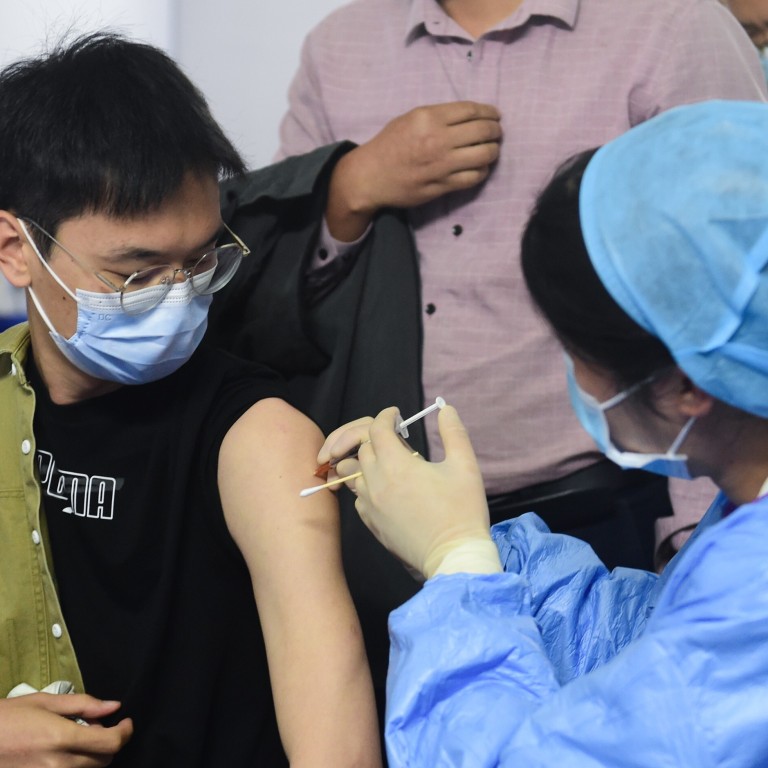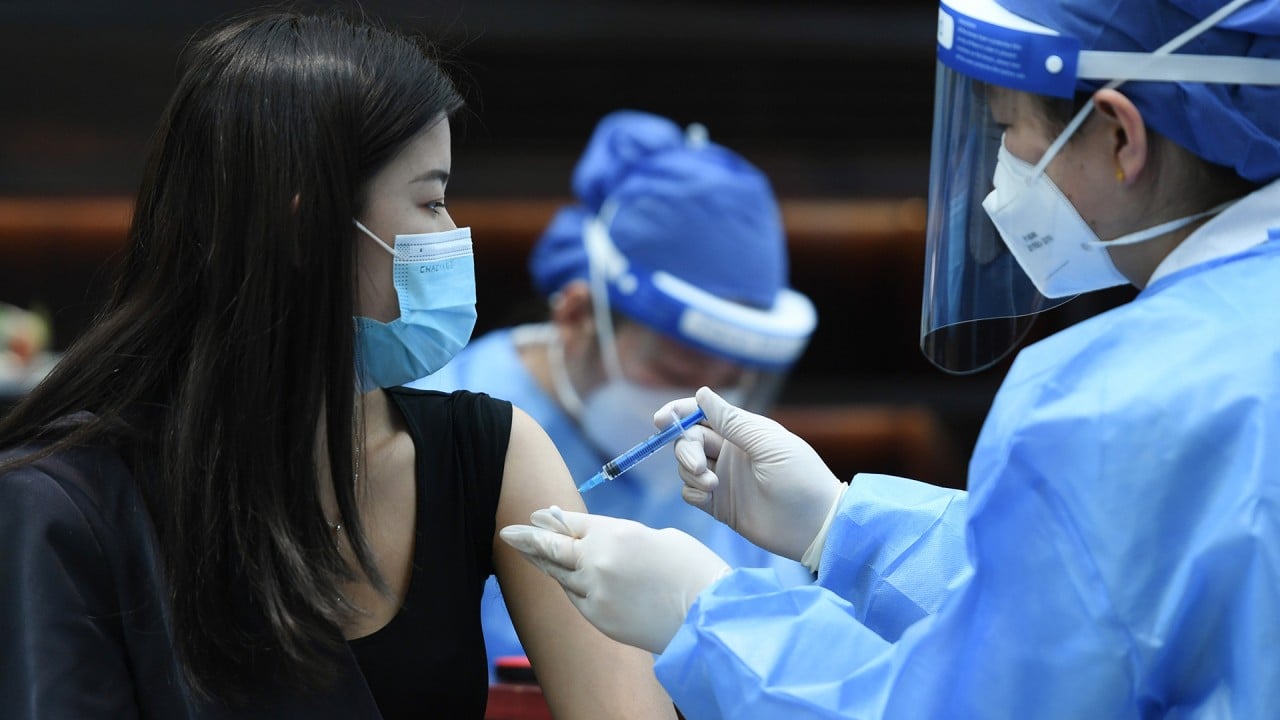
China vaccination rates skyrocket as millions respond to Covid-19 outbreaks
- More than 15 million doses delivered in a single day after photo studio cluster highlights urgent need for wider protection
- Expert estimates daily rates could reach 20 million if needed, roughly half of California’s population
It was also the sixth day in a row that more than 10 million doses were administered nationwide. China started reporting daily vaccinations in late March. It took 25 days to reach 200 million shots, 16 days to 300 million, but only nine days to achieve the 400 million milestone on Sunday.
China’s vaccines put to real-world test against Covid-19
Shao Yiming, a researcher with China Centre for Disease Control and Prevention and an expert in Covid- 19 vaccine development, told state broadcaster CCTV that daily inoculations could reach 20 million if needed. That is the equivalent of roughly half of the population of California.
“Vaccine supplies are increased with demand for vaccine prevention and control. The whole country is being immunised in an orderly manner. People should feel urgency but no need for panic. Our supplies are sufficient and production capacity is increasing gradually,” Shao said.
Shao said, with increased supplies in the second half of the year, herd immunity could be achieved within the year.
Vaccination rates gained pace after the gradual increase in vaccine production but accelerated after a Covid-19 case was reported on Thursday in Anhui province, eastern China, which was soon traced to a photo studio cluster in Yingkou. There was a sharp rise in enthusiasm for vaccination in both provinces after it was reported none of the 18 new cases had been vaccinated.
Previously, vaccination rates in Anhui and Liaoning had fallen behind, with fewer than 20 doses per 100 people administered, compared to the national average of 29.

02:06
After ramping up vaccination drive with incentives, China administers 200 million Covid-19 shots
Beijing is in the lead, with 12.7 million – 58 per cent of its population – completing the two-dose regimen, and 70 per cent with at least one shot. This includes 2 million people aged over 60, according to the municipal government.
Respiratory diseases expert Zhong Nanshan appeared on CCTV on Tuesday to stress the importance of getting enough of China’s population vaccinated to achieve herd immunity – a level of community vaccination which reduces the disease spread enough to protect people who cannot be vaccinated, for whatever reason.
“A very critical next step is to build herd immunity by widespread immunisation. The prevention measures we have been using is not enough, not even for China,” Zhong Nanshan said.
China has been counting on rapid, large-scale testing, rigorous contact tracing, quarantine and lockdowns when local outbreaks were reported. The country is largely Covid-19 free with occasional outbreaks, but is facing an immunisation gap that threatens its full border opening as global vaccination roll-out proceeds.
‘Little evidence’: do we really need Covid-19 vaccine booster shots?
Beijing announced in late March that 40 per cent of its 1.4 billion population would be vaccinated by June, with an estimated 70 to 80 per cent to be fully inoculated early next year if vaccine production is guaranteed.
“In my preliminary view, it takes about 80 per cent of the population to be vaccinated with vaccines with an efficacy rate of 70 per cent to reach herd immunity. This is a very urgent matter,” Zhong said.
Zhong said the urgency of reaching herd immunity not only mattered for population protection, but also for reducing coronavirus mutations.
“The earlier we establish herd immunity, the fewer mutations will occur. This is very urgent for China,” Zhong said, adding that virus mutations could affect the level of protection offered by vaccines and the development of therapeutic drugs.
China approved its sixth vaccine for emergency use on Friday, a two-dose inactivated jab from Shenzhen Kangtai Biological Products, which has not yet been through late stage human trials, highlighting the urgency of making more vaccines available. The company said its facility, with a design capacity of 200 million doses, had already started production.
The one-shot CanSino vaccine started rolling out at the end of last month from its Tianjin facility, which has an annual capacity of 200 million to 300 million doses. Its Shanghai factory is expected to test production next month with an annual capacity of 200 million doses.
The CanSino vaccine has been administered in some parts of China, including Tianjin and Shanghai.

